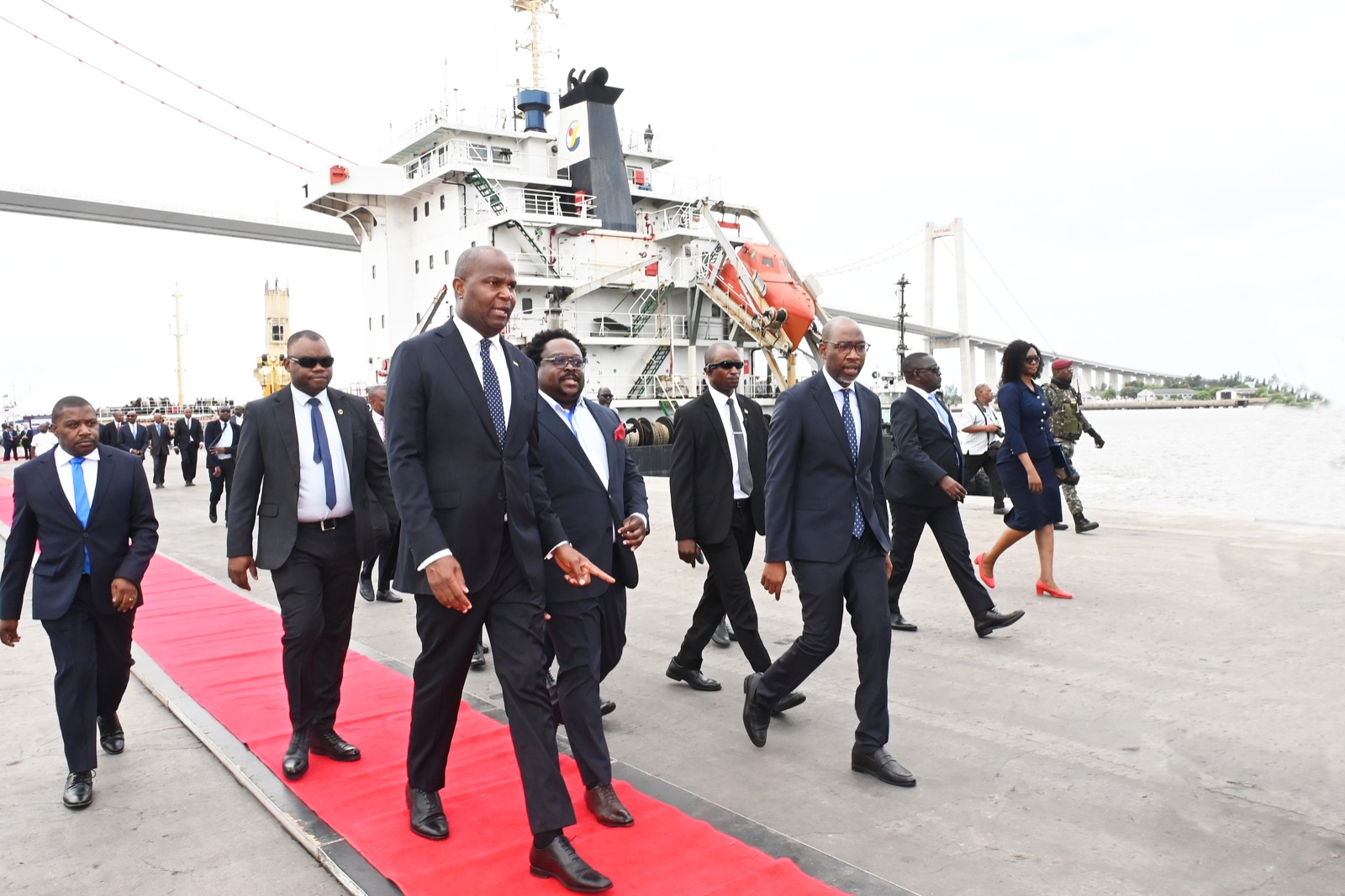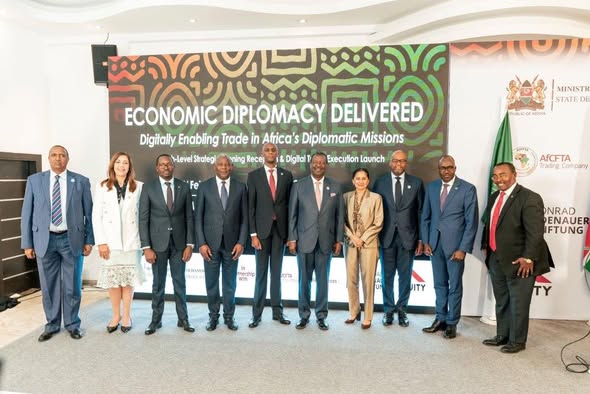MOZAMBIQUE – President Chapo Relaunches Maritime Cabotage as Strategic Pillar of National Logistics

The President of the Republic, Daniel Chapo, today relaunched maritime cabotage services in Mozambique at the Port of Maputo with the commissioning of two large vessels, acquired by private partners, which will ensure regular transportation of goods between the main national ports.
The initiative, included in the First 100 Days of Governance Plan, marks a strategic step in modernizing national logistics, reducing pressure on roads, and strengthening the blue economy.
“It is with great satisfaction and a profound sense of responsibility that we are here today at the Port of Maputo for the official relaunch of maritime cabotage services along the coast and Ports of Mozambique,” declared the Head of State in his speech. The act symbolizes a strategic shift in national transport policy, with a focus on cabotage as a sustainable alternative to road freight transport.
The new vessels, duly licensed by the Maritime Transport Regulatory Authority (TRANSMAR), include a 120-meter-long general cargo ship capable of carrying more than 9,000 tons — equivalent to 250 trucks — and a container ship of about 80 meters, with a capacity for 144 TEUs (twenty-foot equivalent units). Both strengthen operations at the ports of Maputo, Beira, Nacala, and Pemba.
The President of the Republic highlighted the role of the private sector in this initiative, emphasizing that “the ships we have the privilege of presenting publicly signal a new approach by the Government to encourage the private sector to invest in maritime cabotage and logistics as a secure business.” He mentioned that the transformation of the Ministry of Transport and Communications into the Ministry of Transport and Logistics reflects this new strategic vision.
The PRINCE vessel, belonging to Moçambique Dugongo, joins another vessel from the same company, acquired in February 2024, with a capacity exceeding 10,000 tons. These units, in addition to cement and clinker, will transport other goods, including medicines, school books, and various cargoes for different national economic operators.
Also launched today, the vessel from CIVITAS PARTNER GROUP, with a capacity of about two thousand tons, will now operate on the Maputo/Nacala route, transporting essential consumer goods, school supplies, construction materials, and even vehicles. This strengthens the group’s presence in the northern zone, where it already operates with two vessels of one thousand tons each.
“Maritime cabotage plays a fundamental role in boosting the economy, as it promotes greater efficiency in the transportation of goods, reduces logistics costs, and stimulates the development of strategic sectors,” emphasized the Head of State, referring to impacts such as job creation, environmental sustainability, and the revitalization of internal trade.
The statesman reiterated that “we need to encourage the private sector to invest more in acquiring ships to anchor national logistics in maritime cabotage,” allowing, for example, the flow of cereals produced in the center and north of the country to the south, combating the effects of cyclical droughts. President Chapo urged maritime sector stakeholders to “propose concrete and facilitating measures” for removing barriers to business and assured that the Government will continue to create incentives, such as reduction of port fees and priority in the operation of cabotage vessels. “Logistics is business,” he concluded, encouraging more investors to join the revitalization of national maritime cabotage.





